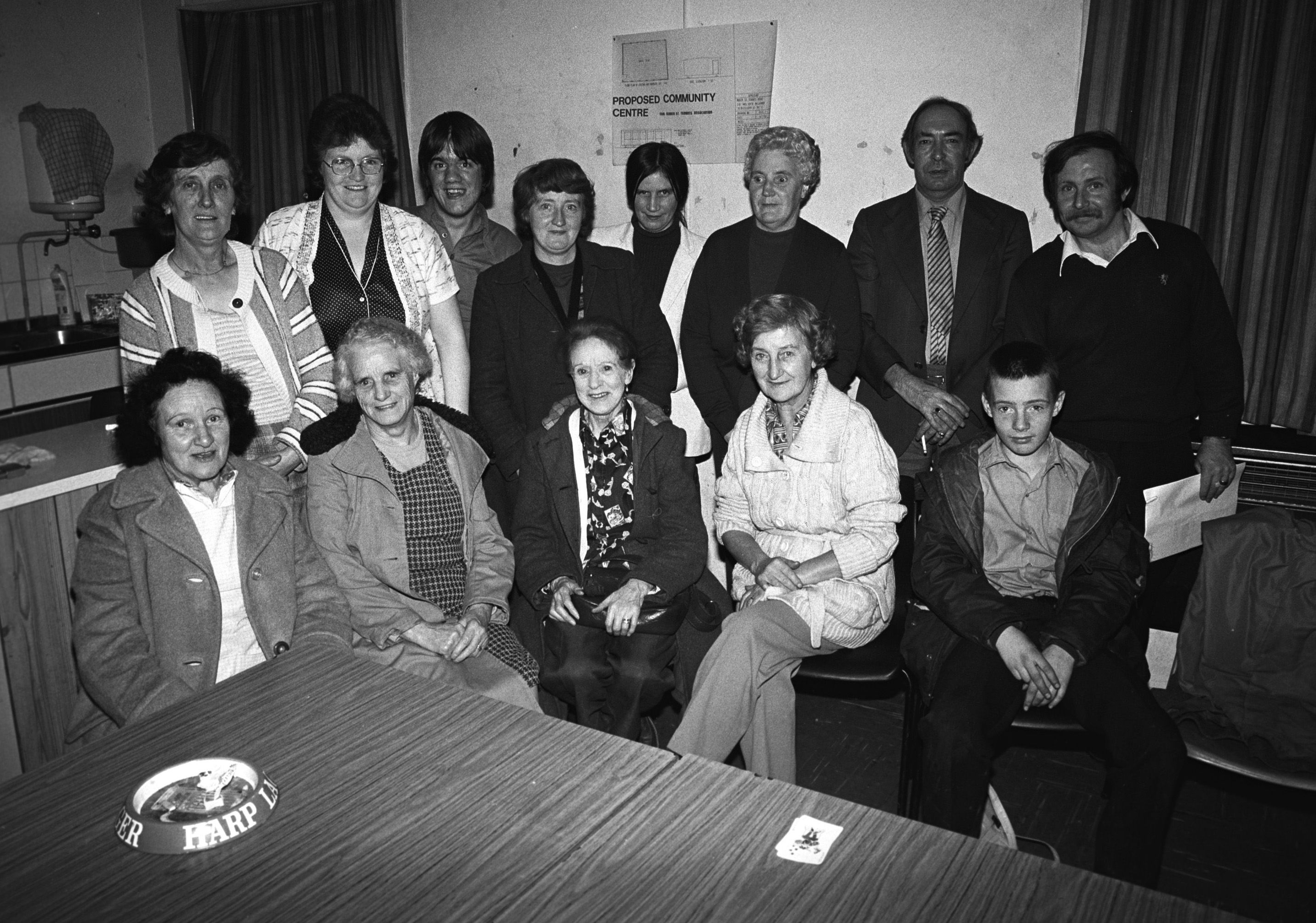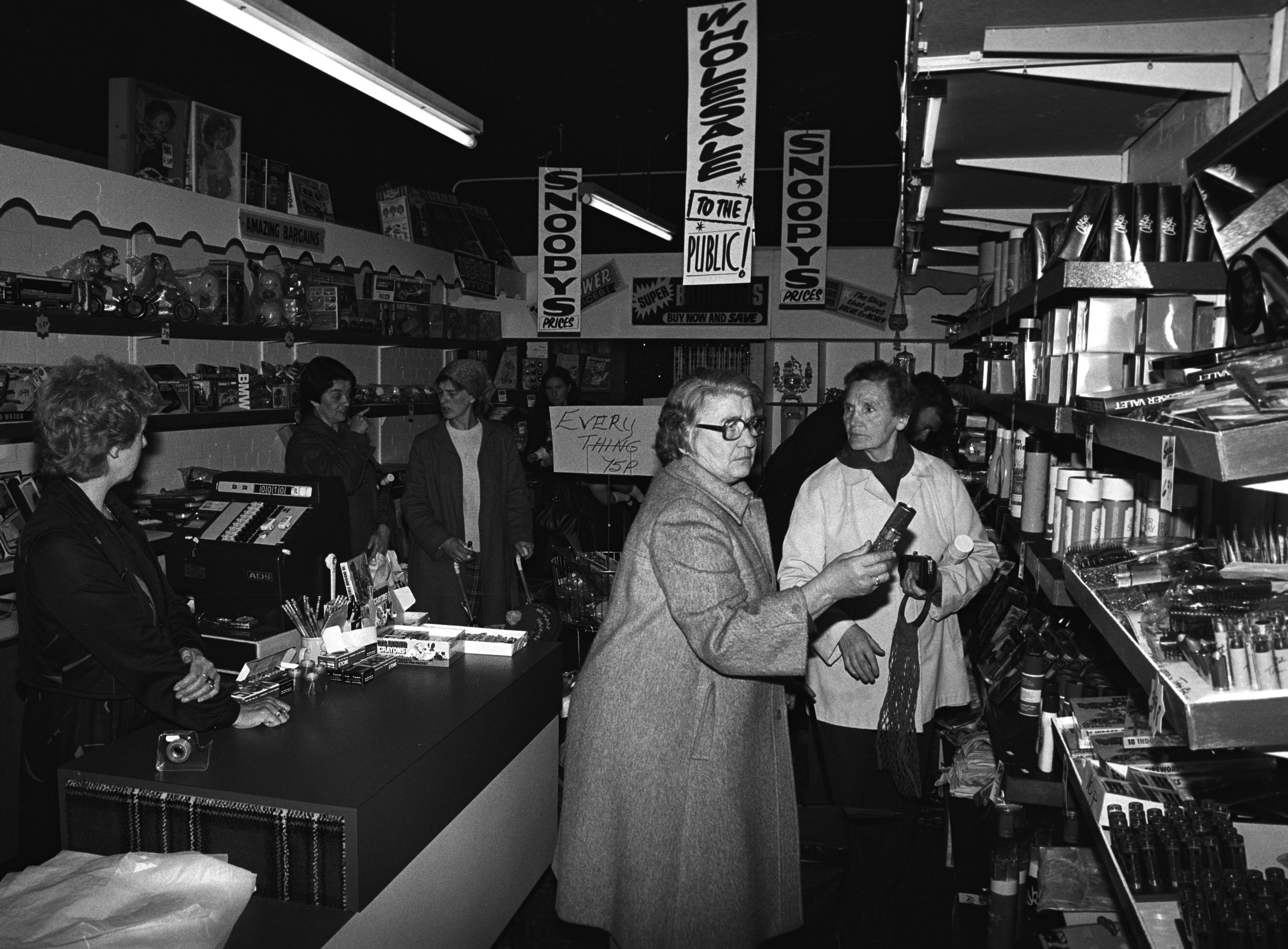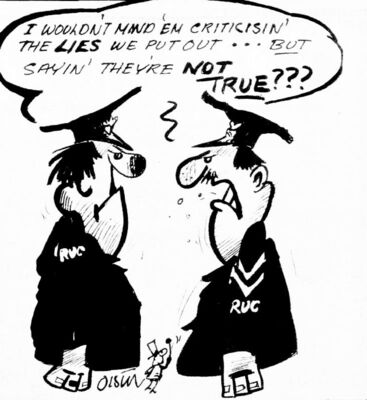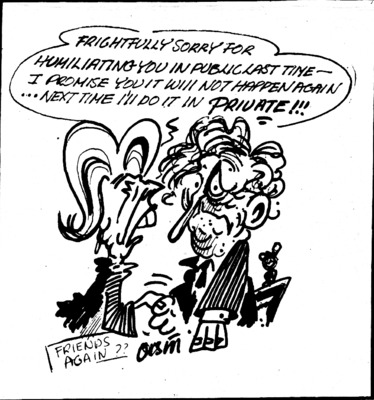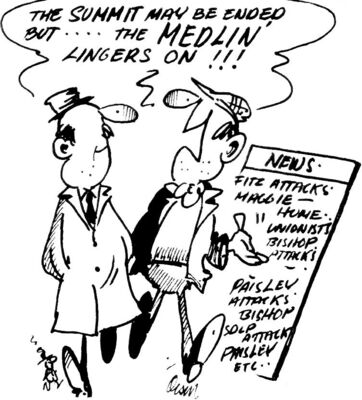We look at the stories that were making the news this week back in 1982
Noel Gill, Kevin Bailey, Jes Gill, Kathleen Gill and Jacky Dunn enjoying the night at the West Belfast Drivers Club, Beechmount Avenue, social night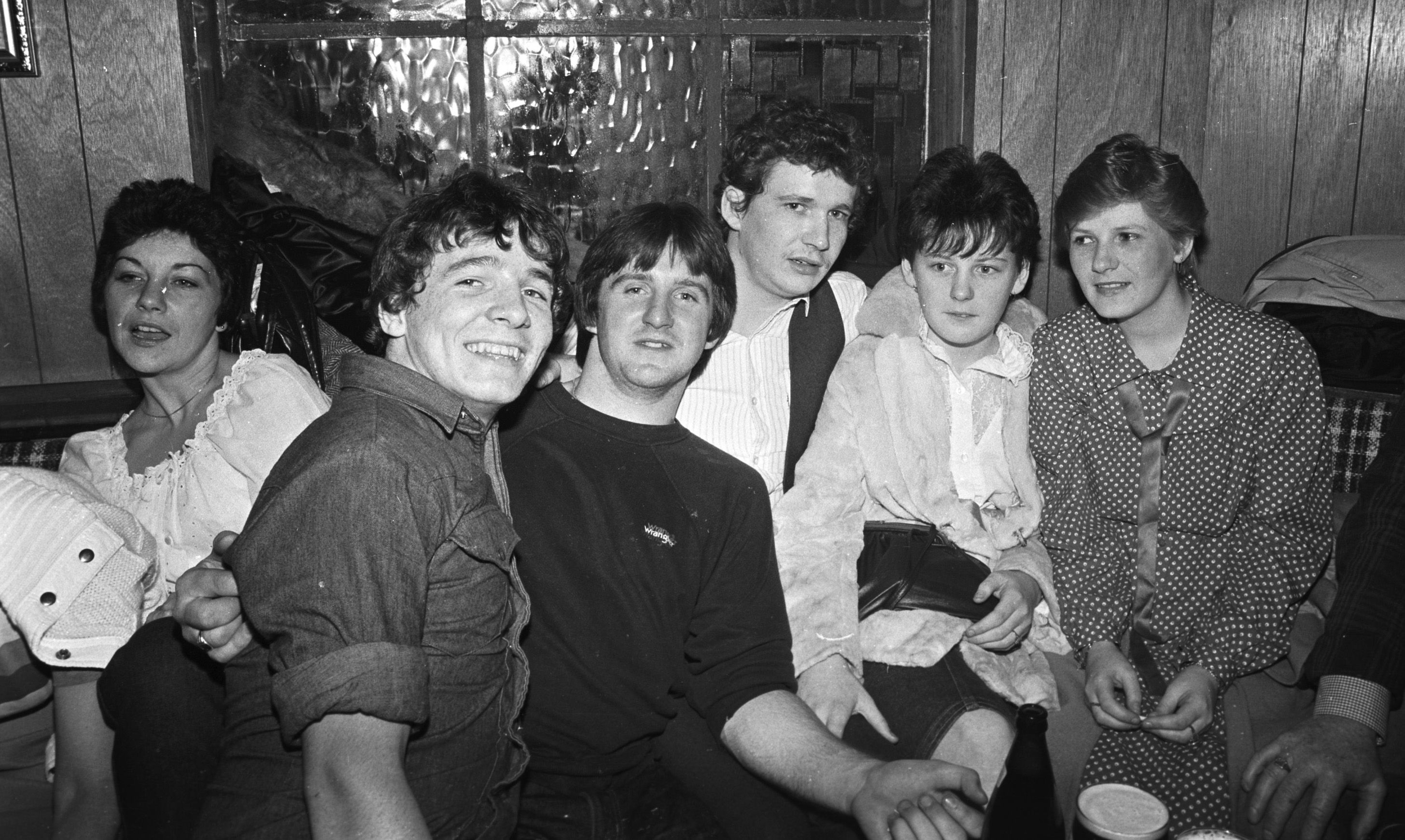
£100,000 secured from benefits
THE Welfare Benefits Campaign in Ballymurphy has netted an estimated £100,000 for the area's needy. The scheme was launched in May to aid people who were not claiming all the benefits they were entitled to. And now the successful scheme is to be carried out in Moyard and Springhill.
Organisers of the campaign, the Whiterock Resource Centre, mounted an extensive survey of Ballymurphy over the summer months to determine which benefits people were not claiming.
Once compiled all the facts and figures were studied and then claims submitted to the DHSS for benefits that previously had been unclaimed because people did not know they existed. Benefits that were not being claimed included family income supplements (for a husband on a low wage), rent rebates and clothing allowances.
A number of families received lump payments of between £200 and £500 for bedding and furniture. Another family is now receiving an extra £11 weekly under the Rent and Rebate Scheme. A spokesman for the Whiterock Resource Centre stated that there were three hundred odd claims arising out of the survey. "The vast majority of these were for additional supplementary benefit payments but there were several rent rebate and income supplement payments," he said. Some claims were opposed by the Falls Road Social Security Office but were accepted once the Resource Centre made it known it would pursue any refused claim.
And now the 'Benefits Take-up Survey' has been set up in Moyard. This week workers will be going from house to house seeking the information necessary to submit additional claims. This information is essential to the success of the survey, and will be treated in the strictest confidence. The campaign will be organised out of the Moyard Housing at 49D Moyard Crescent.
This survey, covering Moyard and New Barnsley, will be supported by the Whiterock Resource Centre. A third survey to cover Springhill and Westrock is planned to begin within the next few weeks.
John Kennedy, Carmel Finnegan, Tommy and Mary Molloy, Roisin Allsop, PJ and Kathleen Robinson at the Relatives for Justice fundraising disco in the Hitchin' Post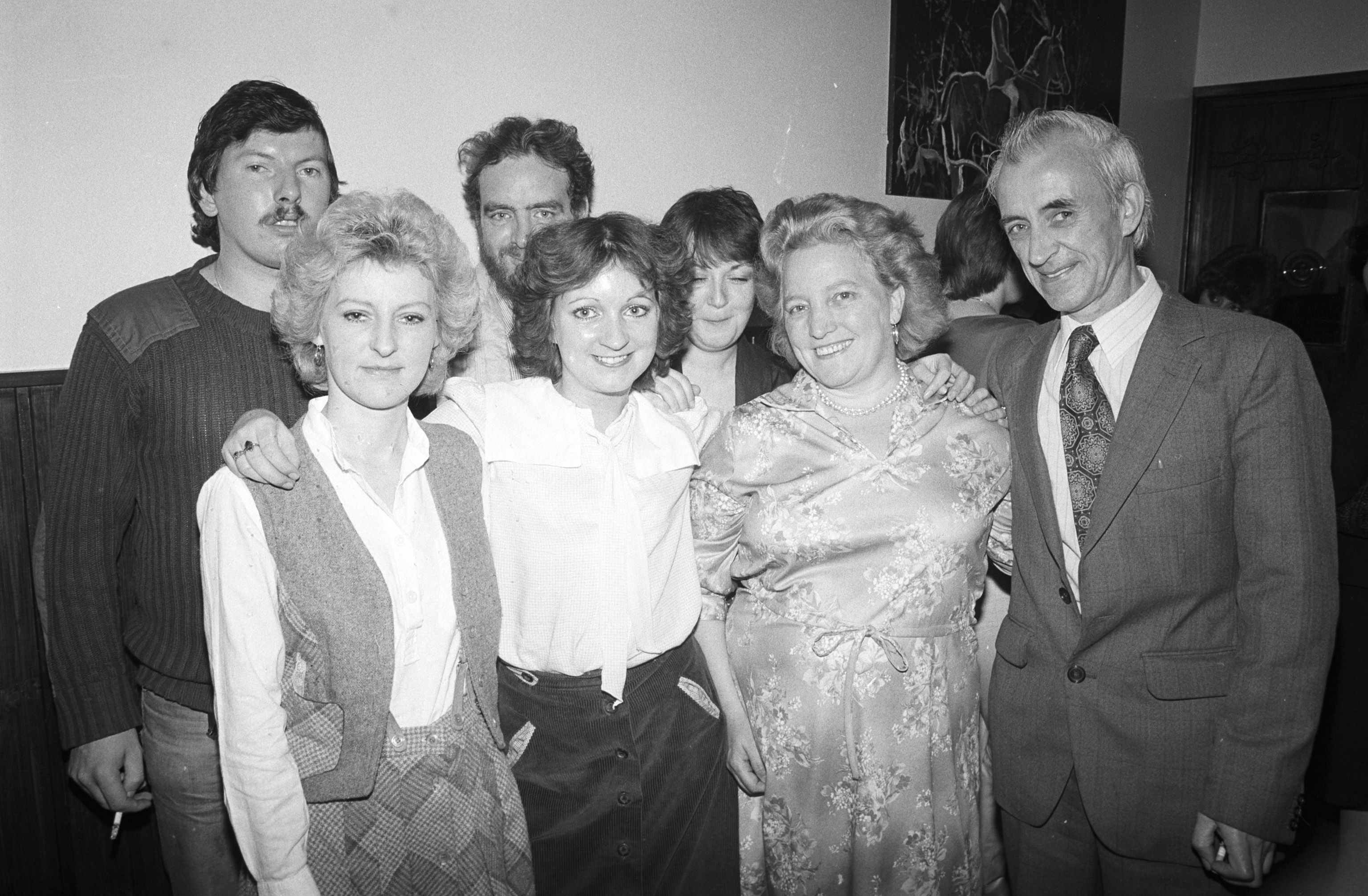
Irish street signs campaign
THE campaign to Gaelicise street names will be relaunched tomorrow night in the Andersonstown Social Club.
A social evening, organised by the Belfast Committee of Conradh na Gaelige, will feature some of the city's finest traditional musicians and folk singers.
Conradh plans to erecl Gaelic street signs (alongside the English ones) throughout the St James' area in the near future. The street signs campaign is only part of an overall campaign by An Conradh to promote an Irish identity in all areas.
Taille for the function is £1 and the night kicks off at 8.30pm.
Bell Campbell, Anna Burke and Hetty Sharkey among those at the Beechmount Community Club ‘Glamorous Granny’ Night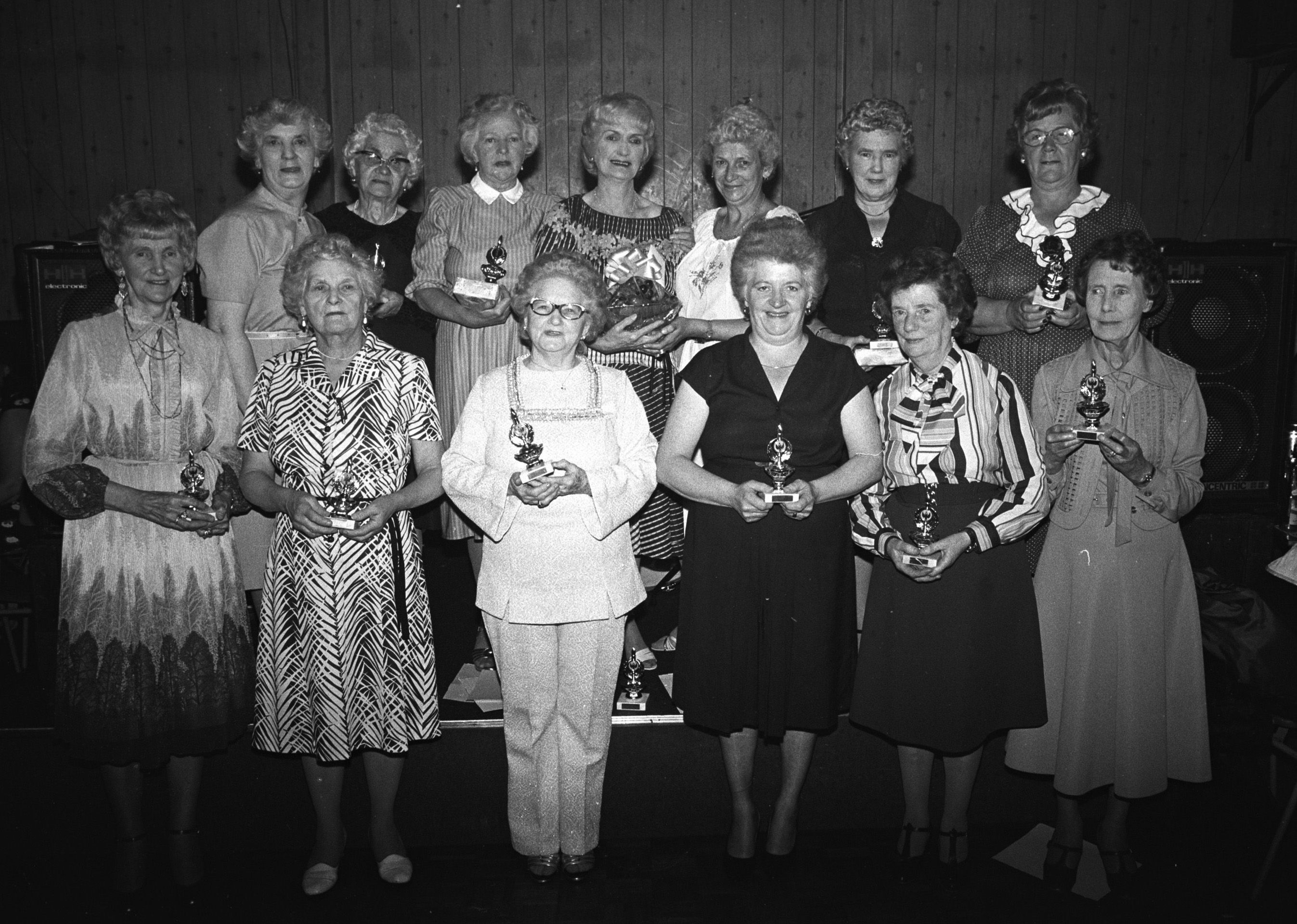
Editorial
BISHOP Daly's condemnation on Sunday of "violence" and his pleas for reconsiliation between Catholics and Protestants will come as a disappointment to people who had hoped for something less superficial and more constructive from the Down and Connor Diocese' new pastor.
The "violence" he condemns would appear to be that carried out outside such law as exists in the Six Counties. No mention was made by the violence created by the political authorities here and the violence inherent in the whole political system.
With regard to reconciliation between Catholics and Protestants, it is not true that these two groups are as far apart as Dr Daly says. Most of the people in question are poor or relatively poor; and they co-exist as peacefully as do such groups in other places –- that is to say, as peacefully as circumstances permit.
Unfortunately, in Ireland, circumstances don’t permit the full peaceful co-existence of Catholics and Protestants, because Britain has said that there shall be no such co-existence. Britain has decreed that Irish Catholics and Protestants may not have political institutions to which they can all owe allegiance; and by her presence in Ireland, ensures that no such institutions should emerge. It isn't in Britain's interest that they should.
Britain stands in the way of Irish people of all religious and political persuasions having a normal life. It doesn't matter from what direction you approach the matter – the British obstacle stands in the way – and we all know it.
Is It too much for us to expect that senior Catholic clergymen should know what is obvious to the rest of us? And can we ask them that if they are determined to speak on political matters at all, to first identify and highlight Britain's involvement in Ireland for what it is – a gross act of violence and the primary cause of all the violence in our country today.
Bishop Daly wants to see an end to violence. Of course he does – so do we all. And why shouldn't a bishop of the Catholic Church appeal for a non-violent approach to all matters? Christ told us to turn the other cheek.
Turning the other cheek, however, doesn't have to be the same thing as turning the head the other way. We have a problem here that in the last 13 years alone has killed over 2,000 people. It's a problem not of our own making but we have to suffer it. Britain is that problem and we should be able to depend on Catholic clergy to help solve it. For those in authority, especially churchmen, to refuse to see the problem as it is, is another act of violence – as vicious as any bomb, bullet or plastic bullet outrage.
Roden Street residents win their campaign to keep a portacabin at their community centre